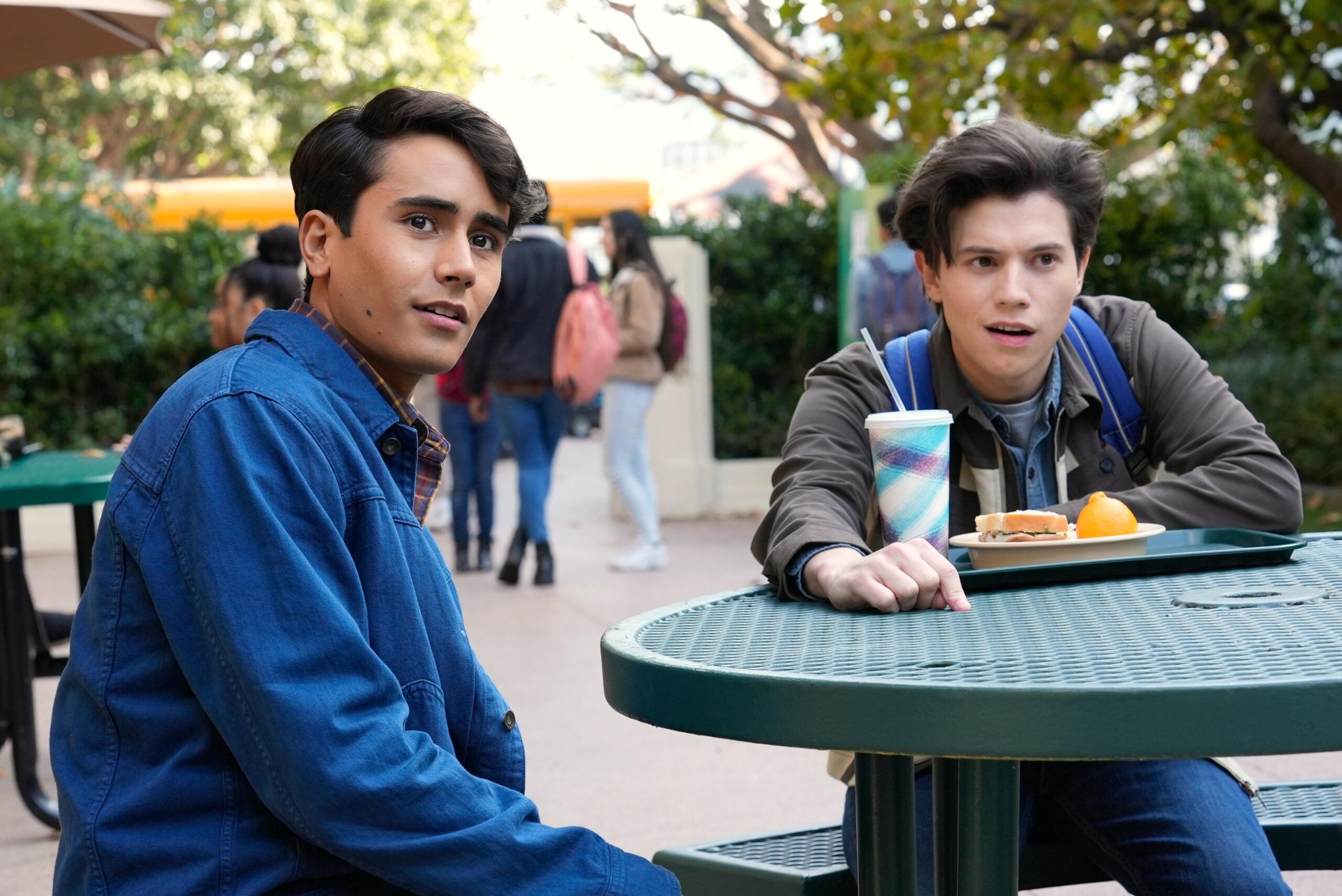Warning: this review contains spoilers for Season 3 of Love, Victor.
Pride Month is back and you know what that means–a new season of Love, Victor! A spin-off of the critically-acclaimed teen film Love, Simon (2018), the show is arguably an improvement over its original source material. While it continues its gay romance premise, it also prioritizes characters of color and portrays all different kinds of queer experiences. Over the past two seasons, we’ve watched Victor discover his sexuality, come out to his family, endure hateful comments from the people he considered his family and closest confidants, and fall in love. (Multiple times, in fact.)
I won’t lie, as much as my feelings about the series have been mixed since the beginning, watching this third season knowing it was it’s last made the overall viewing experience bittersweet. For the past few years, streaming services like Hulu and Netflix have made a habit of canceling popular and critically acclaimed Latinx shows, from One Day at a Time to Gentefied, and now Love, Victor–which is a problem all on its own.
But I still managed to binge the last eight episodes in just a few hours and was pleasantly surprised to find that this may have been the best season yet.
Victor spends most of this season single, living out his best gay life, which I found relatable and true to real experiences. At Rahim’s urging, he enters the casual gay dating scene, engages in casual hook-ups, and even gets an STD scare that is really a rash from poison ivy. Even though Victor realizes he wants a steady, committed relationship, it was refreshing to see gay sex and dating being portrayed on screen without that implication of guilt or wrongdoing, or without the heavy Benji baggage as it did the previous season.

Meanwhile, in the first few minutes of Felix and Pilar getting together, we find out that she isn’t actually allowed to date. “There’s this thing with Latino dads and their daughters,” Victor has to explain to a very confused Felix in episode five, and it’s true. I’ve never felt more seen than when her dad Armando goes full overprotective mode on Pilar, calling her his “little girl” and confining her to her room after discovering her secret relationship. Or when she’s forced to resort to using walkie-talkies and climbing out of windows to spend time with Felix. Later, it was amazing to see his toxic machismo get taken down a notch by Victor’s mom Isabel and for him to see Pilar as a full person rather than his possession, the way our culture often accepts, even praises.
Not to mention that the show finally gives us some wlw content between Lake and Lucy, a friend of the group’s who quickly grows into something much more. While it’s true that gay boys need more representation of their stories on screen, it’s hard to not also celebrate healthy, queer love between young women without that male gaze or really, any opinions from the show’s male characters. And again, the unique problems of queer relationships are brought to the forefront in much-needed and relatable ways. Lake has a freak-out about how to have sex with a girl. She doesn’t know how to share this new relationship with her mom or how to talk about her evolving sexuality. She figures it all out in the end but seeing Lake deal with issues I myself have often thought about was extremely validating.
But there isn’t enough time, and it all wraps up too neatly in the end to feel true. Victor’s former love interests are randomly thrown into new relationships right away, Pilar and Felix never really have a full conversation that shows where they’re at emotionally, and Victor just ends up back where he started with Benji at the beginning of the season. They decide to stay together but rather than feeling satisfying, the moment falls flat and feels like a tired repeat of what we’ve seen before. On-off-again pairings only work if the audience is invested and this time around, it didn’t feel like even the show itself was convinced.

It was bittersweet too, knowing I wouldn’t get any answers to my remaining questions: will Armando and Isabel succeed in their new business? Will Felix and Pilar ever explore their short-lived romance again? What’s next for all the couples who return to each other in the end? I was ready for more and felt like we’d all been robbed of knowing those answers and seeing how it could continue to play out.
All that said, what I can appreciate about Love, Victor and commend it for its commitment to showing the realities of life as a queer person of color. From the beginning, it never held back from portraying Victor’s self-doubt, internalized homophobia, religious trauma, or his family’s struggle to accept him because of their own cultural ideas of sexuality and gender.
Later, we saw that deepen with Rahim, who is not as straight-passing as Victor and has a complicated relationship with his Muslim religion and upbringing. In this season, he even has to pretend to be straight so as to not upset his uncle or bring dishonor upon his family. Those struggles are real and vital to portray on-screen, and I’m thankful to Love, Victor for doing that and so much more. And most of all, for hopefully opening up more doors for even more queer stories to be told.

